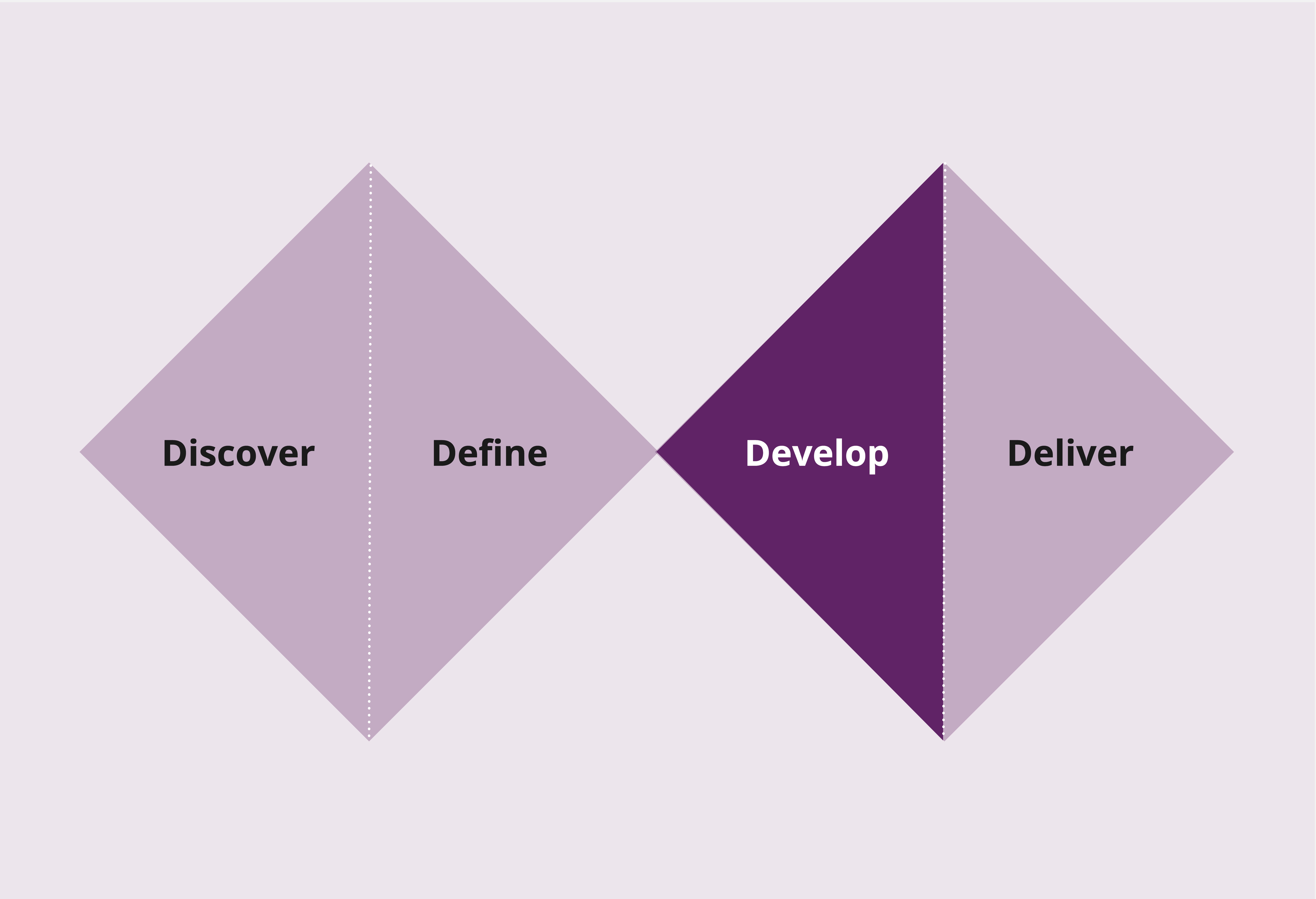
Once your problem is clearly stated, you are in a good position to create possible solutions.
- Co-create multiple ideas by involving people with different perspectives, knowledge and expertise.
- Be expansive and ambitious in your thinking – do not pre-judge ideas.
- Cluster ideas to identify potential solutions.
- Prioritise solutions relating to key criteria with service user needs at the centre. Create visual and engaging prototypes to test solutions as early as possible.
- Use the feedback to refine solutions before going through the loop again.
Key Topics
Make sense of the data and pinpoint the right problem before moving onto solutions.
Key Topics Key TopicsThe value of the Design process
Start with the why, and then select the tool
There are a wide range of tools available for each stage of the design process. It is important to think about what you seek to achieve and then to find or create a tool that would help you to do that.
You can find a full list of tools in the Tool Directory, but here are some suggestions to get you started in Discovery:
